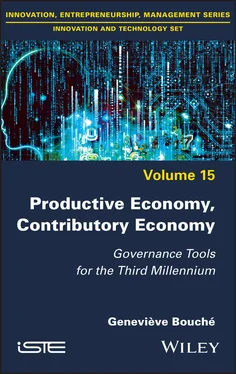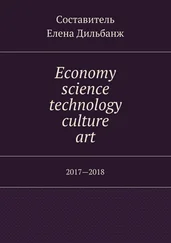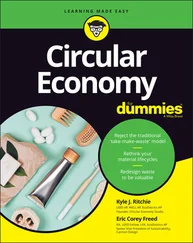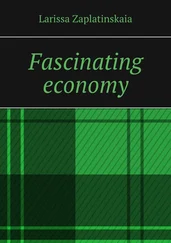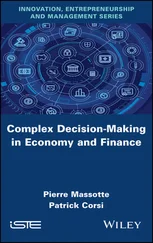About the contributory economy
The concept was proposed by the author in the 2010s in a circle gathered around Michel Giran ( Les Nains de Jardin ), then reproposed in the CSOEC Sustainable Development Commission gathered around Muttiah Yogananthan, but finally deepened through other more informal circles and in reaction to Bernard Stiegler’s remarks who used the term by backing it up with a less precise concept: free contribution, presented by him as a social phenomenon.
Acknowledgments
Thanks to all those who exchanged with me, and provided reading recommendations and audiovisual documents, during the gestation of this publication starting in 2018 in Cameroon and finishing in 2021 in France.
Special thanks to Claude Périgaud and our network of friends, to the members of Forum Atena, La Fabrique du Futur, MFRB ( Mouvement français du revenu de base , French Basic Income Movement), FAIR, etc. and many other think tanks that opened their doors to me, as well as to those who listened to my lectures and read my work.
February 2022
1 1Productive, contributing and empathetic.
PART 1 The Driving Facts of Change
Global warming, the spread of poverty, the appropriation of our data, etc. These signs that worry us mobilize the most militant and anger the most conservative. The power of their fear stimulates reflection and encourages innovation. A long journey of struggles and victories, which will last at least three generations, is beginning. For, as we shall see, even if more and more of the world’s citizens understand that we have reached the end of the civilization model, we do not have the tools, nor the institutions, to govern the world to come and prepare the generations to come.
In a world that wants to be connected, we do not have any more effective means of cohesion than those of our elders when they felt the need to change their model of society. And yet, it is by bringing together ideas and the will to change that we will be able to move forward.
Indeed, in order to equip ourselves with the institutions we will need, it is necessary to understand the causes of the change that is imposed on us. This change requires us to accept a more complex organization for people who are more mature, more demanding as well as more responsible and accountable.
The 20th century began with the unraveling of European monarchies and the rise of a new form of governance, certainly inspired by ancient Rome, but which had yet to be discovered. The 21st century began with the realization that another form of governance must take over from the current one. It is not the one in place that will do the job, but the one that the rising generations will design with the help of the outgoing generations. Ideally, they will have to do this without exploding the current system and before it launches into multiform fratricidal wars (economic, cybernetic, military, etc.).
In particular, the most important measures are not spectacular, but they affect our way of seeing the world in depth. They concern our living together, locally and in synergy with our neighbors… the opposite of globalization, so to speak!
As Valerie Bugault points out, globalization is a Dutch and English idea, promoted by an insular or quasi-insular culture. Europe is continental and so are most other countries. This has never stopped us from trading with the rest of the world, but not obsessively.
Here and there, initiatives are taking shape, ideas are circulating, values are being established and, at the same time, the dangers of centralization and its daughter, dictatorship, are threatening. It is this duality that interests us in the following pages.
1
Adapt or Dare?
1.1. Accepting to evolve
1.1.1. For a shared Europe
Everyone feels the changes that are shaking up our institutions: our usual ways of thinking are increasingly challenged. Europe is perceived as an area of renewal, yet hampered by a governance that is still seeking its effectiveness. It must find a way to preserve what has made its strength: quarrelsome kingdoms, in constant emulation.
It is the cradle of key words of the previous change, such as “capitalism”, “socialism”, “communism”, “liberalism” 1, “ecology”, etc. But in the four corners of the continent, these words do not have the same resonance, which makes dialogue sometimes complicated.
With the development of mobility tools, it is becoming the socially and economically sound area that has the right scale to dare a new model of society. It can achieve this by seizing the technological shift in digital technology and energy production.
When it comes to innovation, it is futile to chase the one who has become the leader. It is better to watch for the next innovation and seize it. That’s what’s happening right now in energy, but especially in digital technology.
Digital is not just a technology. It is an amplifier for the model of society. The new digital, which we will discuss here, is the main springboard for 21st century Europe.
It can do so because its people want it to. It does not have to adapt to the changes that the leaders of the 20th century were trying to impose on it.
The 19th and 20th centuries were marked by technological innovations that excited those who could benefit from them. But they were abused. Now comes the time for rationalization, that is, the time to put things into perspective and to rebuild a more mature model of society with a more complex governance, despite the defenders of Cartesian thinking who are used to treating our problems in silos, even if this has been our strength until now. To do this, we have to broaden the range of talent that is needed to steer the ship that is Europe.
A learning process understood by the greatest number is required. A necessary and desired metamorphosis, but not too fast if we want to do it in depth for a lasting result.
There is nothing to prevent this. Europeans are very good at thinking by themselves and for themselves. They have a particularly continuous societal heritage. It is deep and solid, but difficult to maneuver … unless a surge of enthusiasm is triggered. Understanding this continuity is already laying the foundations for our renewal because ideas are more easily forged in cultural continuity, which facilitates gradual evolutions rather than revolutions.
1.1.2. For a real respect of Gaia’s internal rules
Gaia is the “mother goddess” of the ancient Greeks. In the 1970s, the English ecologist James Lovelock used her name to convey the idea that the Earth is not a mere rock, but the active support of life, and this life includes human beings: we walk on the Earth and live in Gaia.
Gaia is alive: she never stops changing. The real effect of human actions on her evolution remains unknown, but the active presence of humans in the life of Gaia is undeniable.
Gaia’s life is not a succession of coincidences, but a chain of reactions articulated around a few principles:
– life is stronger than death: humans can disappear without life disappearing. Humans, currently outnumbered on this planet, represent less than 5% of living matter and our bodies are in fact a complex of living matter capable of surviving itself;
– life evolves along a trajectory that goes from the material to the spiritual: this trajectory travels around obstacles. Nevertheless, the search for efficiency in terms of energy consumption remains one of the predictable points of choice;
– life cannot live without diversity: it maintains its dynamics by combining cooperation and competition between all living elements, all of which are in constant evolution. Too much competition leads to regression, and too much cooperation leads to stagnation and then regression. These excesses end up in “crises”. These crises promote progress.
Читать дальше
